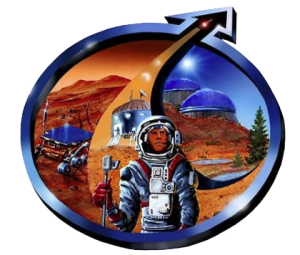Personal and Public Narratives on Earth for Space and Mars Exploration
by P.J. Marcellino
As a storyteller, I am fascinated by personal narratives in the public space, by what we can learn collectively from what makes individual humans tick, and how they are influenced by any number of personal motivations, socio-political constructs, or belief system undertones. In my practice, I seek not only to understand and deconstruct why we as individuals choose the paths we do, like the things we like, and go to the places we go to, but also how, for what reason, and why it is that, faced with the exact same decision-making tree, some of us will choose a path, as others choose another.


These themes are grandfathered within the literary and film genres of travel, adventure, and exploration narratives. They have remained present over centuries of chronicling but are less documented in what pertains to space exploration, except perhaps within the imagined realities of Sci-Fi and Speculative Fiction worlds many of us grew up reading. This is perhaps because, in the grand scheme of things, we have just started exploring space. However, as humanity ventures deeper into the research that will eventually land humans on Mars, the need to understand personal motivations for such a voyage looms enormously in my mind: Why will we, as a society, elect to go? Why will some of us, as individuals, step up as intrepid explorers? But also, how will it all function? It warrants inquiry.
This questioning is interrupted by our current terrestrial challenges, both at the level of our socio-political organization, and at the level of our global responses (or lack thereof) to the challenges of climate change and environmental sustainability. For many, Mars research either divorces humanity from the political problems on Earth, or it diverts scarce technical, financial, and human resources away from resolving the current environmental crisis.
These views need not be in opposition. There is a case for Mars built into the fabric of the Earth sustainability movement. And it is political, technical, scientific, and philosophical.

Taking my own personal journey and geobiography as an example, I have been brought to this mission in specific ways. On the one hand, I am the kid who dreamt of space voyages and I am a storyteller who seeks to understand the motivations of humans to explore; on the other hand, I am a political scientist constantly obsessing about power relations, leadership structures, unlearning colonialism, debasing oppression. On top of this, I have also spent close to a quarter century passionately advocating for environmental sustainability.
I contain multitudes and layers of intersectionality. So does every member of Crew 238. And, most importantly, so will every human being who will ever embark on a journey to Mars. While our independent stories are inherently unique, it is the intersectionalities that make the observation of our individual, collective, and societal motivations so fascinating.
During my time at MDRS, thus, through mixed-medium chronicling, including journal entries, interviews, film, and documentary photography, I will collaborate with my crew to portray our individual paths to the station, our motivations, our aspirations from yesteryear, and our expectations for the future of space and Mars exploration. In other words, what makes us tick, and what can we extrapolate from us to future astronauts.
In the process of chronicling our individual journeys to analog astronauting, I hope to gain an understanding of how institutions could harness the personal to convey the political to large global audiences. Can an aspirational narrative of exploration and achievement be crafted and effectively communicated? Can we garner public support for continued space exploration, not despite our terrestrial challenges, but because of them, co-opting them, leveraging them to assist us here on Earth? Can we find ways to harmonize Earth’s sustainability needs with extra-planetary expansion goals? Can we both mitigate poverty and still explore the galaxy? Can our problems here be used as an inspiration to settle Mars under a new power system? Can we learn on Mars how to build the utopia we have so often failed to build here, in our home planet? And if so, how?
I am inspired by — and will carry with me as references — key works on space exploration, and hope to leverage Commander Robinson’s in-depth knowledge of exploration history. These works include records from previous MDRS crews; iconic films such as the feature documentary Spaceship Earth on Biosphere 2; Isaac Asimov’s Foundation series (realistically Macchiaveli, Socrates and Sun Tzu rolled into one); and certainly the oeuvre of Kim Stanley Robinson, starting with his Mars Trilogy (Red Mars, Green Mars, Blue Mars), and ending with his recent The Ministry for The Future, a true speculative fiction manifesto for radical political and environmental change here on Earth.
As any documentarian, I can’t commit to a specific story thread line before I see how it unspools. My plan is not only to chronicle our daily activities — both scientific and banal — in detail, but also to document pre- and after-mission thoughts, creating a hybrid storytelling format that hopefully captures interesting facets of what awaits Mars research in coming years. The generation of this public narrative purports to further the Mars Society’s goals by sparking the imagination of people and securing popular support for ongoing Mars research.







